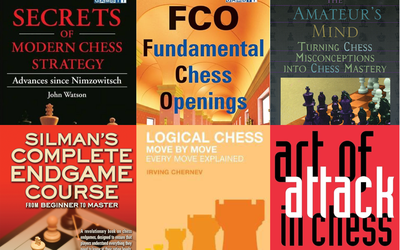
Photo of our match against Dublin Chess Club, who have one of the nicest chess clubhouses I've seen.
How I won my greatest chess upset - twice
Surely I had no chance against opponents 500 points higher than me, right?In a previous post, I discussed how I have been playing chess for my local club Naomh Barróg in the local chess league. Well as a follow up, a small summer cup was organised, with 4 teams in a group and 2 groups in each cup.
Unfortunately, I quickly realised we were in big trouble.
You see, the players on my team ranged in strength from about 900-1150, whereas the other teams in the Killane Shield ranged from about 1200-1700. This meant that we had to face players who were on average 500 points higher rated than us and in some games, their lowest rated player was still higher rated than our board 1. I don't know how we ended up in this group and it was clear we didn't belong here.
Worse still, as board 2, I would have to face the strongest opponents head on.
Suffocating the King
I started the game with the reliable Ponziani, which my opponent later told me took him by surprise. I was able get good central control and double his h-pawns, leaving a hole that made kingside castling risky. However, it also made kingside castling risky for me and the game would be decided over the question of whether the open g-file was a weakness or a strength.
I immediately began pushing my Queenside pawns, intent on making another hole that would prevent him castling in that direction. By making both Kingside and Queenside castling unlikely, his King was stuck in the centre and vulnerable. Not that my opponent took this lying down, he launched a strong counter-attack that won a pawn and had me worried, but despite the strength of his Rook, his attack petered out.
The momentum began to swing back to me as I slowly restricted his space. There was no one strong attack or decisive move that I made, instead I gradually removed available squares and forced his pieces into passive positions. By move 26, all his pieces were on either the 7th or 8th rank with nowhere to go, whereas I had multiple avenues for attack.
The killing blow came on move 34. My opponent tried to trade Queens, but I discovered a tactic where I could take his Bishop first, give a check and then retake the Queen, winning a piece. Even if my Bishop was taken (as happened in the game), retaking was also check. Down a Rook, my opponent resigned.
Don't underestimate your lower rated opponent
Sure, I could beat someone 440 points higher rated, an impressive achievement, but what chance did I have against someone rated 1686, almost 600 points higher? Perhaps this enormous difference made my opponent over-confident and inspired him to play very aggressively. On only move 4, he moved his Knight for a 2nd time to attack my Bishop and then went even further by pushing f3 and g4. He succeeded in trading his Knight for my Bishop, but in doing so, over-extended his pawns.
If there's one thing I learned from the previous game, it's how dangerous it is to leave your King in the centre, so I decided to attack at once and prevent castling. The engine calls the Queen check on move 11 an inaccuracy, but for me, it was one of the most crucial moves of the game. The King was exposed and valuable time had to be spent moving him to safety instead of developing White's pieces.
On move 16, I threatened to move my Knight to e3, forking the King and the Queen. My opponent saw it and defended the square with his Bishop, so now my plan focused on how to deflect the Bishop. It took time, but on move 26, I finally seized my chance and took with my Rook, which couldn't be retaken without losing the Queen.
Unfortunately, my delight was short lived as 3 moves later, I lost my Knight. It was frustrating to work so hard to win an advantage only to lose it so soon, but I took solace from the fact that I was still up two pawns, I had a massive time advantage and his King was still exposed.
I kept the pressure on and on move 35, I thought I had the game won. His King was surrounded and he had only five minutes left on the clock. The end was near, I could sense it. My instinct was to immediately check the King and force him into an even more exposed location, but I worried that he would just run to safety. I had read some advice on the danger of a mindless King hunt and that while giving checks is satisfying, they're meaningless if there's no mate at the end. Instead I decided to treat it like a puzzle, where I ignore the obvious move and instead make a more subtle move that seems slower, but wins the game. So, I moved my Rook to c8, cutting off the King's only escape square and seemingly preparing for mate next move.
Unfortunately, that was a tremendous blunder.
I should have taken more time and tried harder to calculate what happened once I started chasing the King. Even if I didn't see the exact line for mate in 10, I should have found that I would win material. I saw that White could sacrifice the Rook on b7, but I didn't see any danger in a few Queen checks, missing the danger of Rook to f7.
However, luckily, I again had the chance for a forced mate, but again I missed the opportunity. I made the mistake of seeing a good move and taking it, without stopping to ask if it was the best move. I also made the same mistake I made in Drogheda, where I thought the clock would win the game for me, and I shouldn't spend too much time on my moves as my opponent had only a minute left.
We now entered the most frustrating part of the game, where my opponent subjected me to an endless series of checks as our Queens danced around each other. I knew I was winning, I just had to keep my pawns and trade Queens. I had worked too hard to get such an advantage and then end up with a draw (despite the fact I would have been delighted with a draw before the game). Finally, after an exhausting three and a half hour game, on move 63, I was able to fork the King and Queen, winning the game.
A single endgame move
After 2 massive upsets, I felt anything was possible, so why not try make 3? As one of my teammates couldn't make the game, I was promoted to board 1 and faced the highest rated player in the group. Afterwards, I found out that the player on board 2 had found my lichess account and prepared specifically against me, which I unintentionally dodged. This is the downside to this blog, it makes it easier for people to prepare against me, and someone joking suggested I should put false information here to misguide people. To be honest, I enjoy writing so much that I don't mind if opponents try to use it against me, in my opinion prep only takes you so far and to win you mainly have to outplay your opponent.
I opened the game by playing the Alapin in response to the Sicilian and we entered a line where the Black Queen comes out early. I was happy to trade off Queens at the first chance I got and we moved into a complex positional game. I overextended my c-pawn and was surprised when Black didn't take it, which would have important long term consequences.
My opponent traded a Rook for my Bishop and Knight, a trade I wasn't sure about who benefited most from. Things seemed even or perhaps even turning against me, when I realised I could start pushing my pawns. At first, I thought I had to avoid the danger of the Knight fork on move 29, which seems to cost me my Rook, but then I realised that if Black does that, they can't stop my c-pawn from becoming a Queen. Rather than allow this, my opponent sacrificed their Knight for the pawn.
I couldn't believe my luck, I was winning against someone 600 points higher rated! The engine says the position is in fact an even draw, but at the time I felt I was winning (although I knew a tricky endgame lay ahead of me). On move 33, I had to decide between forcing a Rook trade or going after the King. Perhaps, I was greedy, but I figured 'I'm winning so I'll play for the win.' Funnily enough, it was my opponent who took the initiative and quickly boxed in my King and left my Rooks too far away to help.
It was still a very close game and on move 39, I debated between moving my Rook to b7 or doubling it on d2. Unfortunately, I made the wrong choice as b7 was just too slow. My opponent surprised me with h1+ and only afterwards did I see how his King was now blocking mine and escorting his pawn. But still the game is a draw if I just find the one right move.
I didn't find it.
Rook to a7 on move 51 seems like a reasonable move, but the engine says it completely cost me the game. It wastes one precious tempo and means the e-pawn becomes too advanced to stop. That being said, I probably never would have found the idea of moving the pawn to g5, especially because it relies on the idea of sacrificing the Rook for a pawn which can't be promoted as the Bishop is the wrong colour. Unfortunately, the Bishop was the right colour to ensure promotion on e1, which meant I lost the game.
Conclusion
Overall, I'm delighted with how I performed in the Killane Shield. Statistically, I hadn't a hope against any of my opponents, so winning not one, but two games was a massive upset. To give you an idea of how tough our team found it, our six boards scored a grand total of 4.5 points across the 3 games, meaning I achieved almost half of our team's total. I gained a total of 60 points, with a performance of 1781 and by far the two strongest victories in my chess career so far.
While it can be very intimidating facing stronger opponents, in a way you have nothing to lose. Losing my last game only cost me a single rating point, whereas my wins gave me an enormous boost. Perhaps it is worth diving in the deep end and challenging yourself with tougher opponents, so I might take part in more open events.
That being said, it would probably be better if next year, my club faces teams that better match our level.
More blog posts by TeoKajLibroj

Irish Chess Union gives massive rating boost to Irish chess players
How I gained 400 points without playing a game
6 chess books I tried to read
And which ones I would recommend
Has the chess boom reached OTB tournaments?
Have Irish tournaments experienced the chess boom?
